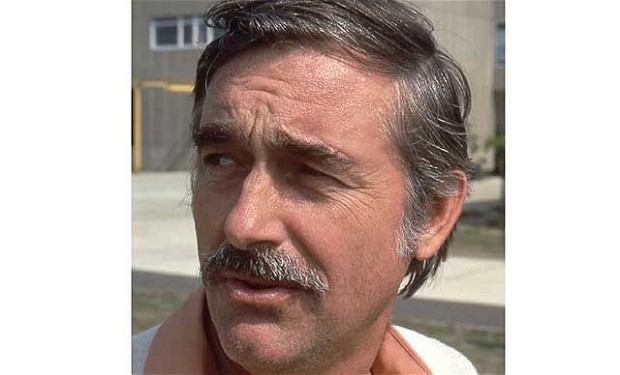For an interesting obituary go to www.telegraph.co.uk/news/obituaries/science-obituaries/10598040/Halton-A… … Halton Arp is associated with adopting an opinion opposed to the Big Bang theory of how everything in the universe began. It is assumed he was a supporter of the Steady State hypothesis, favoured by the likes of Thomas Gold and Fred Hoyle. In fact, there are a lot of assumptions made about Arp – how much of it is true is anyone's guess. We know he was married on three occasions and at the height of his disagreement with the Big Bangers he was denied viewing time at the telescope in the observatory where he worked. Basically, his situation became untenable. He then went to Germany and worked for the Max Plank Institute.
He studied astronomy and went on to work under Edwin Hubble and subsequently produced a major text book, 'The Atlas of Peculiar Galaxies' (1966). He thought they were peculiar but it is unclear how many other astronomers were of the same opinion – but the book was certainly well read and well regarded. For some 30 years he worked at Mount Wilson and Palomar Observatories in California, and during most of this time appeared to have no problem with the mainstream consensus view on the Big Bang. After all, he had a career, and presumably suppressed rash views – most of the time.
The consensus view is that the universe is expanding. This is shown as a fact dear to the hearts of the faithful by the process known as 'red shift' – the light from distant objects betrays their movement in the light spectrum. The idea is that a star approaching an observer on Earth will emit light waves composed, or shifted, towards the blue end of the spectrum, since blue is at the high frequency end. Likewise, a star that is pulling away from an observer on Earth, the light waves are 'red shifted' (as red is at the low frequency end of the spectrum of light). Hence, taking it a stage further, galaxies that are furthest from an observor on Earth, will also display evidence of red shift. The hypothesis is important to the consensus as it enables astronomers to locate those nearest to Earth and those a very long way away. On top of this it is a neccessity of the hypothesis for all the galaxies to be on the move – an expanding universe that is supposed to have its origins in that fateful moment, the Big Bang.
Some have argued that Big Bang is virtually an article of faith, the Holy of Holies of uniformitarianism. The inner sanctum of academic science. Halton Arp is labelled as somebody that tried to upset the apple cart – but how much this is mischief and how much is true is anyone's guess. The curtains are closed.
What did he do? Well, we know he became sceptical of red shift – and he seems to have upset his fellow astronomers by doing so. At this point of the story it is a bit muddy as we don't know how much his personal life impacted on his departure – or even caused him to become a maverick. In 1971, when looking at a quasar, a not altogether fully understood phenomenon, he found it emitted lots of red shift. However, his observations seemed to show the quasar was at the same time associated with a galaxy that did not – and was therefore nearer than the quasar. At this point the consensus group appear to have circled the wagons, protecting the red shift hypothesis, and as is usual in these cases besmirched the observing abilities of Arp (rather than objectively investigating the problem). Bad practise – but we see it all the time, though, over and over again. Why hadn't anyone else spotted it? The answer is bound up with his search for peculiar galaxies – and collecting add-ons to his book. A red shifting quasar attached to a non red shifting galaxy was peculiar – and this is what he showed (and went on to say he had found other examples of the phenomenon). That added fuel to the fire – but did he intend to actually challenge the Big Bang theory or was he just obsessed with the fact that there were things out there in the universe that astronomers could not explain, and he was drawing attention to them. Whatever, it ruined his career as an astronomer in the US, and caused problems in his private life (we might expect).
